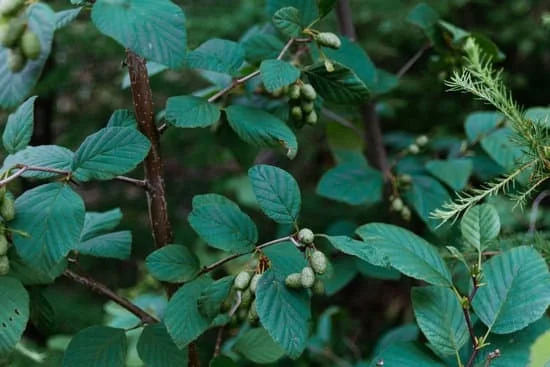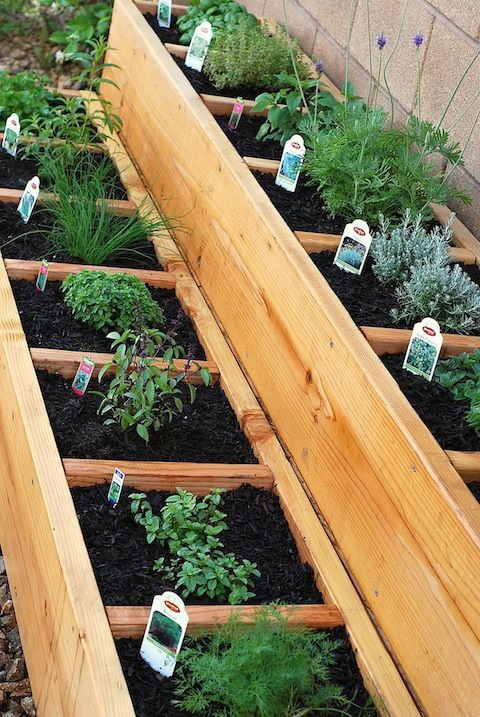Organic Gardening Tips Pests
and diseases are a part of life for any gardener, organic or not. The key to organic gardening, however, is to use natural methods of prevention and control, rather than resorting to harsh chemicals. Here are a few tips to help you deal with pests and diseases organically:
1. Prevention is the best medicine. One of the best ways to deal with pests and diseases organically is to prevent them from occurring in the first place. Some simple tips for preventing pests and diseases include:
– planting disease-resistant varieties of plants whenever possible
– spacing plants properly to allow for good air circulation
– watering plants properly and avoiding over-watering
– using organic mulches to suppress weed growth and retain moisture
– keeping the garden free of debris, which can provide a breeding ground for pests and diseases
2. Use natural methods of control. If pests or diseases do occur, there are a number of natural methods you can use to control them organically. These include:
– hand-picking pests and diseases off plants
– using organic pesticides such as horticultural oils, insecticidal soaps, and botanical insecticides
– using organic fungicides such as sulfur, copper, and baking soda
– using biological control methods such as beneficial insects and nematodes
3. Practice crop rotation. One of the best ways to prevent pests and diseases from becoming a problem is to practice crop rotation. This means rotating different types of plants through the garden each year, so that the same plants are not grown in the same spot year after year. This helps to keep the soil healthy and prevent the buildup of pests and diseases.
Organic Gardening Tips
for the Beginner
Starting an organic garden can be a fun and rewarding experience, but it can also be a little daunting for the beginner. Here are a few tips to help you get started:
1. Do your research. Before you start planting, it’s important to do your research and figure out what plants will grow well in your area. Not all plants thrive in all climates, so it’s important to choose plants that will do well in your region.
2. Start small. It’s best to start small when you’re first starting out with organic gardening. You don’t want to get overwhelmed and give up before you even get started. Start with a few pots or a small garden plot and work your way up from there.
3. Use organic fertilizers. One of the benefits of organic gardening is that you can use organic fertilizers to feed your plants. There are many different types of organic fertilizers available, so you can find one that’s perfect for your garden.
4. Use organic pesticides. Another benefit of organic gardening is that you can use organic pesticides to keep your plants safe from pests. There are many different types of organic pesticides available, so you can find one that’s perfect for your garden.
5. Use mulch. Mulch is a great way to keep your plants healthy and protect them from pests and diseases. Mulch also helps to retain moisture in the soil, which can be helpful in hot climates.
6. Water your plants wisely. It’s important to water your plants wisely, especially when you’re first starting out. You don’t want to over water your plants, but you also don’t want them to dry out. Experiment a little to find the right watering schedule for your plants.
7. Stay patient. One of the most important things to remember when you’re starting out with organic gardening is to stay patient. It takes time for plants to grow and for the soil to become healthy and fertile. Don’t get discouraged if you don’t see results right away.
Home Organic Gardening Tips
Organic gardening is a type of gardening where you use materials that are found in nature. This type of gardening is becoming more and more popular because people are realizing the benefits of organic gardening. There are many benefits to organic gardening, including the fact that you are not using any harmful chemicals.
One of the benefits of organic gardening is that you are not using any harmful chemicals. When you use chemicals in your garden, it can harm the plants, the soil, and the animals that live in the area. When you use organic gardening techniques, you are not using any harmful chemicals, so it is safe for the plants, the soil, and the animals.
Another benefit of organic gardening is that it is better for the environment. When you use chemicals in your garden, it can harm the environment. When you use organic gardening techniques, you are not using any harmful chemicals, so it is better for the environment.
Organic gardening is also better for your health. When you use chemicals in your garden, it can harm your health. When you use organic gardening techniques, you are not using any harmful chemicals, so it is better for your health.
Organic gardening is also cheaper than using chemicals. When you use chemicals in your garden, it can be expensive. When you use organic gardening techniques, you are not using any harmful chemicals, so it is cheaper.
Organic gardening is also easier than using chemicals. When you use chemicals in your garden, it can be difficult. When you use organic gardening techniques, you are not using any harmful chemicals, so it is easier.
Organic gardening is a great way to garden, and it has many benefits. If you are looking for a way to garden that is safe for the plants, the soil, and the animals, and is better for the environment, then organic gardening is the way to go.
Organic Vegetable Gardening Tips For Beginners
If you’re new to organic gardening, you may be wondering where to start. Here are a few tips to help you get started:
1. Start small. Don’t try to do too much too soon. Start with a small garden plot and add on as you gain experience.
2. Plan your garden. Decide what you want to grow and map out your garden plan.
3. Choose the right plants. Choose plants that are suited to your climate and soil type.
4. Amend your soil. Amend your soil with organic matter to improve its fertility and structure.
5. Use organic fertilizers. Use organic fertilizers such as compost, manure, and green manure to provide your plants with nutrients.
6. Use organic pest control. Use organic pest control methods such as traps, barriers, and natural predators to control pests.
7. Water wisely. Water your plants deeply and infrequently to promote healthy root growth.
8. Be patient. Gardening is a slow process. It may take a few seasons to get your garden established.
With these tips, you’ll be on your way to a successful organic garden.
Free Organic Gardening Tips
A garden can be a beautiful and tranquil addition to any property, and can provide fresh fruits, vegetables, and herbs for the inhabitants of the home. However, a garden can also be a lot of work, and it can be difficult to know where to start. These free organic gardening tips can help you to get started on your garden and to keep it healthy and thriving.
One of the most important things to remember when starting a garden is to choose the right location. The garden should be in an area that gets plenty of sunlight, and it should be situated close to the home so that it is easy to access. The garden should also be situated in an area that is protected from strong winds, as this can damage plants and prevent them from growing properly.
Another important thing to keep in mind when gardening is to choose the right plants. Not all plants thrive in all climates, so it is important to choose plants that are suited to the climate and the soil type of the garden. It is also important to choose plants that will be compatible with each other, as this will help to create a healthy and balanced garden.
Once the plants have been chosen, it is important to prepare the soil properly. The soil should be amended with compost or other organic matter to provide the plants with the nutrients they need to thrive. The soil should also be loosened up so that the roots can grow properly.
Once the plants have been planted, it is important to water them regularly. The garden should be watered deeply, and the soil should be allowed to dry out between waterings. This will help to prevent the plants from becoming waterlogged and will help them to grow healthy and strong.
One of the best ways to keep a garden healthy is to mulch the soil. Mulching helps to keep the soil cool in the summer and warm in the winter, and it helps to keep the weeds under control. Mulch can be made from a variety of materials, such as compost, straw, or bark chips.
These free organic gardening tips can help you to get started on your garden and to keep it healthy and thriving. With a little bit of work and a lot of patience, you can create a beautiful and productive garden that will provide fresh fruits, vegetables, and herbs for years to come.

Welcome to my gardening blog! I am passionate about plants and enjoy sharing my knowledge and experiences with others. In this blog, I will write about everything related to gardening, from tips on how to get started to updates on my own garden projects.





